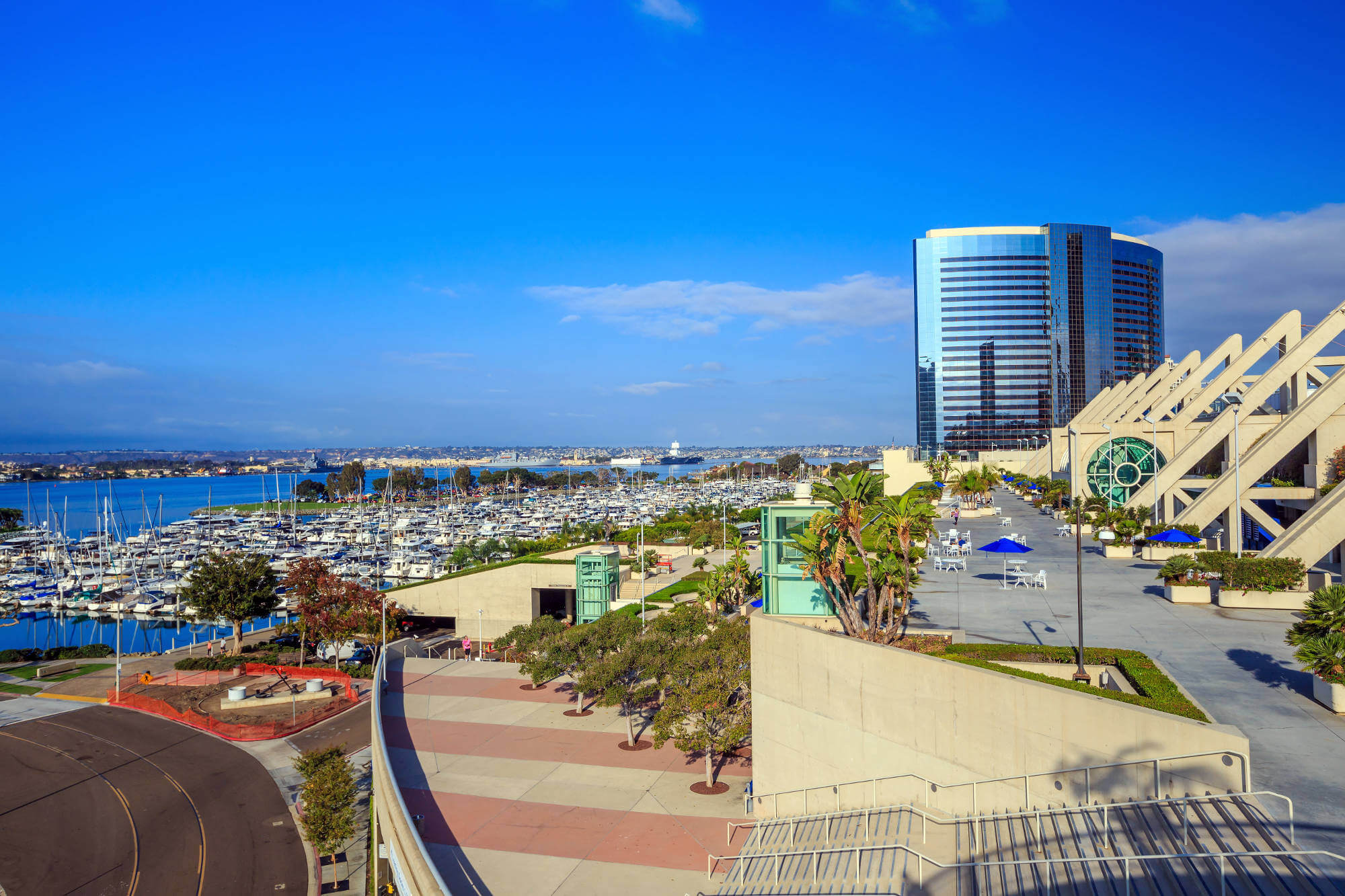What Does the Future Hold for Fixed Wireless Here in San Diego?
June 6th, 2022 by admin

In today’s high-tech world, high-speed internet is undeniably a necessity for the existence of human society and especially modern business. Whether you’re contacting customers, deploying field sales reps, or bringing new employees into the fold, a reliable internet connection is crucial in today’s business climate.
At ATEL Communications, we always recommend our customers select the right internet technology based on their requirements.
Here in the sunny city of San Diego, California – there are tons of internet providers from which to choose. But, often, businesses tend to overlook a large and growing player in the internet community – Fixed Wireless. Today, we’ll do a deep dive into the present-day use of fixed wireless and what could be the future of the technology as internet speeds keep increasing.
By now, you’re probably asking yourself, “So what is Fixed Wireless Internet exactly”?
Fixed Wireless is a technology that uses radio waves transmitted from a base station to provide internet connectivity. In San Diego, Fixed Wireless is a newly used term, but in the past, it used to be called a wireless point-to-point network. So call it what you will because they are really talking about the same thing at the end of the day.
A receiver or antenna is installed outside a customer’s building. From there, a cable-run connects the receiver to a router that’s installed inside the customer’s suite or building. From the base station, which is local here in San Diego, the internet provider bounces the wireless signal from building to building through a network of antennas that current customers already have. Unlike 4G internet or 5G internet, it doesn’t use cell towers to deliver its service but rather a network of antennas that are already existing on other customers’ roofs or buildings. Eventually, they are all daisy-chained to provide an ever-expanding coverage area for new and existing customers.
For businesses in San Diego, connecting to a fixed wireless internet is the exact same thing as connecting to a router/service such as fiber or a T1 connection.
The speed of Fixed Wireless is genuinely comparable to that of cable & fiber optic internet. But what sets it apart from other technologies is that it’s a lower price point than traditional fiber. Still, similar to cable internet, it can also be turned up and activated in a speedy time frame.
As with any new technology, customers always have their concerns for Fixed Wireless here in San Diego
Since fixed wireless internet offers several benefits, there are some drawbacks too, but not what you would typically think for wireless service.
The most common questions that businesses ask before signing up for Fixed Wireless are:
- How stable is this kind of internet connection?
- If we need to up our speeds, can Fixed Wireless scale upward with a quick turnaround?
- How secure is Fixed Wireless?
- In San Diego, are there any geographical drawbacks that may hinder the quality of this service?
Some companies do worry that bad weather will make the service perform horribly. However, unlike 4G or 5G wireless, it’s worth noting that while bad weather has the potential to slow down fixed wireless internet, that’s rarely the case with a redundant Fixed Wireless provider. The biggest and best fixed wireless providers in San Diego use carrier-grade equipment, advanced technology, and a vast network of antennas to counter interference caused by bad weather.
For this reason, fixed wireless is undoubtedly one of the more reliable wireless internet connectivity technologies on the market – compared to 4G and 5G broadband. Keep in mind, though, that all internet connections are not entirely immune to extreme weather and natural disasters. Heck, even a fiber circuit can go down because someone decides to dig on their property and cut an existing fiber line, or maybe a fire rips through a community only to decimate the broadband infrastructure that was already in place.
The installation process of Fixed Wireless providers for businesses here in San Diego is the same except for cellular wireless. First, an order is placed, and then the carrier conducts a Site Survey to ensure that the service and speed are doable. For Fixed Wireless, though, the site survey is done from the rooftop of a prospective building. They then check for a line of site to the nearest antenna and conduct tests to ensure that they can deliver the speeds that they already promised the customer. If the line of site test passes, then it’s time to move forward with the installation. However, if it doesn’t pass, then this usually means that there is no direct line of site to the nearest fixed wireless receiver.
At that point, the installation is halted, and the customer can then exit the agreement without accruing any penalties for the cancellation. Therefore, there are many types of physical barriers that can inhibit fixed wireless providers from allowing their service to be used in certain territories in San Diego or anywhere else, for that matter. Mountains, other buildings, trees, and distance from existing antennas are usually the biggest hurdles for Fixed Wireless providers here in San Diego. Regarding security, it’s easy to think that a wireless signal isn’t as secure as a wired connection, such as fiber, but that isn’t the case either. Fixed wireless internet has the same level of security as other ‘Wired’ broadband connections. In addition, the easy-to-install and lower costs make it an excellent choice for internet connectivity.
What other benefits can Fixed Wireless provide?
Crazy-fast internet speeds that usually range from 3MB to 1000MB per second are what businesses need, and fixed wireless can deliver. Also, with extremely low latency for a wireless signal, it can often be more stable than DSL, cable broadband, and especially cellular wireless. In the arena of wireless internet technologies, fixed wireless is the ideal service to use for VOIP, Cloud, or Hosted phones. As stated earlier, one of the most significant benefits of fixed wireless is its ease of implementation. It doesn’t require service providers to run phone lines or cables underground, nor does it require them to create the necessary infrastructure for fiber optic cables – above or below ground. Here in San Diego, this also makes fixed wireless available for difficult-to-reach locations too.
What customers does Fixed Wireless benefit the most?
Fixed wireless internet is suitable for both primary and secondary data circuits. It’s especially beneficial for business customers in rural areas. In most cases, the flatter the geographical topography, the better. Fixed Wireless can be the bridge for businesses in these locations where other wired connections lack competition between ISPs. An ISP that knows that they are the only ones that can deliver fiber to the customer building will often charge more for their services, so this is also where fixed wireless can outperform as a stiff competitor. They can compete at a lower price point to the customer.
In San Diego, will Fixed Wireless become obsolete one day?
There is always talk about the longevity of fixed wireless technology as new technologies become a reality. Can satellite internet conquer the landscape of wireless one day? Will 5G squash fixed wireless in the long run? Did video kill the radio stars? Nope, I don’t think so, but only time will tell. The good news is that the fixed wireless sector is growing at a breakneck speed, so that it won’t be going away anytime soon. Every year, more and more players are entering this business vertical, so I predict that rates will continue to drop while coverage areas will continue to increase over time.
ATEL Communications has been a leader in Business Class Phone Systems and Broadband High- Speed Internet for close to 40 years now. Join our team today and let us consult with your voice & data team to ensure that your business can keep the lights on for long as it can.
Posted in: Fixed Wireless
